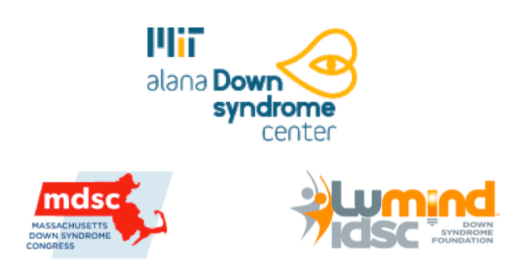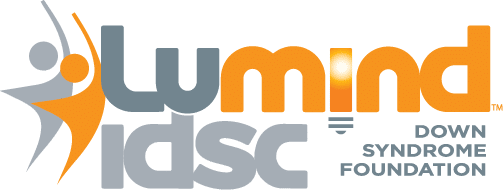
Cambridge, MA – The Alana Down Syndrome Center (ADSC) at MIT hosted the New England Down Syndrome Symposium on November 10, 2020 in collaboration with the Massachusetts Down Syndrome Congress (MDSC) and Lumind IDSC Foundation (LuMind IDSC).
The professional conference featured renowned local, national and international experts presenting on timely research topics, including developmental biology, gene dosage compensation, recent advances in Alzheimer’s disease and sleep apnea in Down syndrome, and more. Designed for professionals in the field, this virtual event gathered 665 scientists, researchers, medical providers, and representatives from pharmaceutical companies to learn about the latest innovations and upcoming advancements. The conference, held virtually, was coordinated through this collaboration in the very active hub for Down syndrome research and support in the New England area that includes ADSC/MIT, MDSC, LuMind IDSC and three Down syndrome-specialized clinics located (MGH, Boston Children’s and UMMS) that is located in the biggest hospital, university and biopharmaceutical cluster in the world.
Launched last year, the Alana Down Syndrome Center (ADSC) is aimed at deepening knowledge about Down syndrome and improving health, autonomy and inclusion of people with Down syndrome. The ADSC is multi-disciplinary, spanning labs and programs across MIT, and engages the expertise of scientists and engineers in a research effort to increase understanding of the biology of Down syndrome. ADSC’s greater mission is to produce research and technology to give people with disabilities the possibility of developing greater social and practical skills, in order to enhance their participation in the educational system, in the workforce, and in community life. Research in the Center investigates mechanisms and potential therapeutic interventions in two main areas: brain circuits and systems, and cellular mechanisms and genetic variation. With these approaches, the team strives to improve understanding of why individuals with Down syndrome experience functional differences and the best ways to address them. to learn more visit: https://alana.mit.edu/adsc-fellows/
The conference also gave tribute to Angelika Amon, co-director, of the Alana Down Syndrome Center who passed away unexpectedly in late October at the young age of 53. “Angelika’s intellect and research were as astonishing as her bravery and her spirit, ”said her ADSC co-Director Li-Huei Tsai.
Welcome remarks by Kate Bartlett, who is a leading advocate for the MDSC, highlighted why research is so important to her and others who have Down syndrome. One of the areas of particular interest is Alzheimer’s disease which affects many people with Down syndrome as early as age 40. Kate advises the MDSC, which is the premier organization for Down syndrome information, networking and advocacy in Massachusetts. Over the past 37 years, MDSC has been a leader in creating innovative programs that empower individuals, families and professionals with knowledge and support to enable people with Down syndrome to lead fulfilling lives in the community. MDSC’s Medical & Scientific Advisory Council collaborates with a number of organizations that focus heavily on research. MDSC programs and best practices have been shared with individuals and organizations in 35 states and 5 countries. To learn more visit: www.mdsc.org
Established in 2004, the Lumind IDSC Foundation is a national Down syndrome organization that accelerates Down syndrome research to increase availability of therapeutic, diagnostic, and medical care options and we empower families through education, connections, and support. LuMind IDSC contributes to research projects and initiatives that target five strategic research categories that cover the lifespan of people with Down syndrome: preventing Alzheimer’s disease, sleep apnea, independence, gene therapy, and access to treatments. LuMind IDSC’s research is focused on translation research from lab to bedside to address unmet medical needs of individuals with Down syndrome. The Foundation has supported 19 observational studies and clinical trials to date with 1400 participants and more than 100 research grants that led to a 4.5x funding multiplier from industry, NIH and other foundations on supported research, and funds a clinical trials network called DS-CTN to accelerate clinical trials. We also actively promote research awareness and research participation in the DS community and benefit from having the largest online Down syndrome community with 280,000 followers. To learn more visit: www.lumindidsc.org
